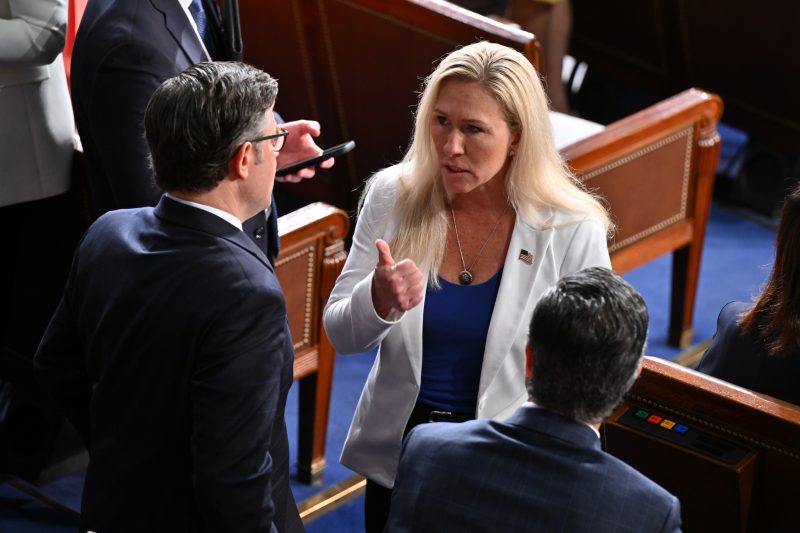After months of inaction, House Speaker Mike Johnson unveiled on Monday evening an outline of his plan to address the conflicts in Ukraine and the Middle East, defying Republicans who threatened to oust him from the speakership if he moved forward with funding for Ukraine.
But Johnson (R-La.) risks appeasing no one with a convoluted plan to placate his critics on the right while also giving national security hawks a chance to advance billions of dollars in aid to Ukraine, Israel and Taiwan.
Johnson plans to put four different bills on the floor, essentially decoupling aid for Israel — which faced a barrage of missiles and drones from Iran over the weekend in retaliation for a deadly airstrike on its consulate in Syria — from help for Ukraine, which is more controversial inside his conference. The speaker will then advance separate votes for aid to Taiwan and a measure to satisfy Republican foreign policy demands, including the seizure of Russian assets.
It’s a major gamble by the embattled Johnson, who was elevated to lead the fractious GOP conference after the unprecedented ouster of Speaker Kevin McCarthy (R-Calif.). The former low-profile lawmaker has had trouble rallying a majority of his conference on almost anything and has had to rely on Democrats on substantive issues, including keeping the government open.
Nonetheless, Johnson intends to try to pass the measures through regular order, requiring a simple majority for approval — a nearly impossible feat that will need the support of almost every Republican given the slim two-vote GOP majority.
Because Johnson intends to advance a bill on Ukraine, it could trigger a vote by Rep. Marjorie Taylor Greene (R-Ga.) to oust him. Greene is threatening to do so if the speaker allows any vote on Ukraine aid.
Greene labeled Johnson’s plan a “scam” but hasn’t said yet whether she will move to try to depose him.
Johnson told the conference that “this is a very important moment for America not to shirk from its responsibility,” Rep. Marcus J. Molinaro (R-N.Y.) said. But the speaker didn’t encourage people to vote for his plan, Molinaro said, instead urging them to “vote your conscience.”

